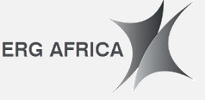Publication: Mining Review Africa
Date: 6 May 2019
Author: Gerard Peter
Responsible, sustainable mining and giving back to communities. These are the tenets of Eurasian Resources Group’s (ERG) mining operations in the Democratic Republic of Congo (DRC).
CEO BENEDIKT SOBOTKA speaks to GERARD PETER about the company’s efforts in contributing to a low carbon economy and uplifting mining communities in the country.
ERG’s African operations account for more than 20% of the Group’s global revenue and employ more than 10 000 people including contractors.
Africa is important and we have a large number of expansion projects in addition to our existing production base,” explains Sobotka.
In Africa, the company is focused on cobalt and copper, two materials that support ERG’s vision and commitment to a low carbon economy.
The DRC is key to ERG’s global operations because of its vast cobalt and copper resources.
“Currently, ERG has about 4 000 km² of exploration licences in the country. This includes Metalkol RTR, a tailings reclamation project in the Haut-Katanga province.
“The project reprocesses historic cobalt and copper tailings from previous mining operations in the Kingamyambo Tailings Dam and Musonoi River Valley. At its height, Metalkol RTR would see a production average of 24 000 tpa of cobalt and 120 000 tpa of copper.”
Transparent supply chain
Significantly, ERG is currently implementing a pilot blockchain solution on the IBM platform at Metalkol RTR, aimed at enhancing traceability in the cobalt supply chain.
The solution will help to ensure a responsible supply chain for lithium-ion batteries. “Firstly, by design, our materials come from Metalkol RTR itself only, explains Sobotka.
“However, if we look at the industry as a whole, there is a huge problem in the cobalt supply chain because of illegal material, often involving child labour and other poor standards.”
In its efforts to promote a cleaner supply chain, ERG is a founding member of the Global Battery Alliance, a public-private collaboration hosted by the World Economic Forum and committed to a sustainable low carbon economy. Sobotka adds that, according to a recent BMI report, the battery market is expected to increase fourfold in the next 30 years.
“People that have electric cars, for instance, should be assured that the cars have been produced in a sustainable way”, he states.
“At the moment it’s not possible to trace where battery materials are sourced from in an efficient, transparent and systematic manner. Through our involvement in the Global Battery Alliance, we are championing traceability along the supply chain.”
Sobotka adds that the Alliance is a good example of cross-industry collaboration as it includes companies across the supply chain, such as BASF, which usea a range of metals including cobalt.
Giving back to communities
Sobotka further points out that ERG is committed to raising the quality of life along with improving wider socio-economic conditions in those regions where it operates.
In fact, the company is one of the largest corporate social responsibility (CSR) investors in the DRC and Sobotka personally visits communities to ensure that ERG is indeed making a tangible difference.
Only last year, the company supported schools for over 10 000 children in the countryand provided medical assistance to more than 30 000 patients.
ERG has also established solar-powered water supply installations for communities, bringing sustainable sources of clean water to around 8 000 people.
Furthermore, the company has established partnerships with various NGOs and civic organisations to implement CSR initiatives. For example, ERG has been working with the Good Shepherd International Foundation in the Kolwezi area.
The areas of focus for this initiative include child protection, development of alternative livelihoods, women and child empowerment and capacity building.
It was announced recently that ERG has cooperated with Pact, an international NGO, which focuses on supporting children that are working in mines. “It is part of the so-called Children Out of Mining programme, states Sobotka.
“We want to ensure that we can implement programmes that show real results and this will always be our top priority,” Sobotka concludes.
